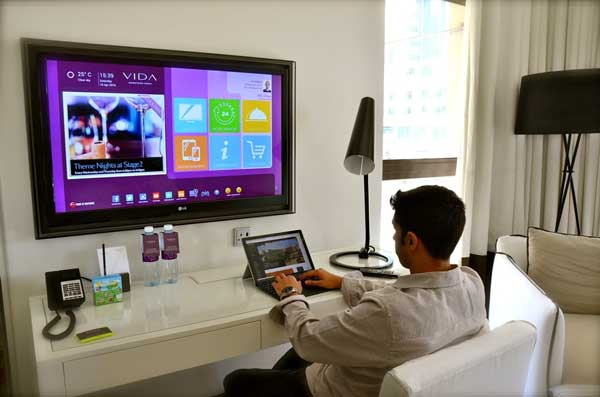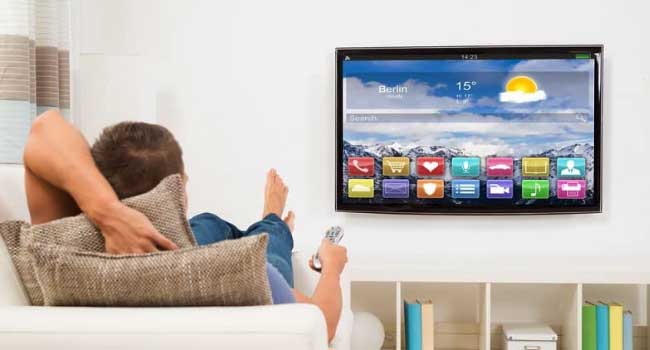IPTV technology has evolved so much that the cable television market is seeing a massive decline over the years. Thanks to the IPTV system gaining so much popularity, cable TV services are exiting the market.
Nonetheless, even though IPTV services have become quite popular, people have started to refer to it as internet TV. But are they actually the same thing? If not, what are the differences between internet protocol television and internet television? Well, that is what we will talk about in detail in this article.
So, if you were looking to learn about internet TV and internet protocol television in-depth, you just came to the right place!
What Are the Differences Between Internet Protocol Television and Internet Television?
IPTV stands for Internet Protocol TV. That said, internet television and internet protocol television might sound like the same thing as they rely on an internet connection; they are not. There are a couple of things that makes both an IPTV service and internet TV services are different. Allow us to explain:

Delivery Method
The primary difference between IPTV and internet TV is the delivery method. First of all, internet TV travels throughout the entire globe. Now, what do we mean by internet TV travels over the world?
Well, think of it like cable services. But instead of just being limited to the service provider, the broadcast will be distributed all over the internet. All you are going to need is a broadband connection or access to the public internet.
On the other hand, IPTV utilizes secure dedicated private networks. The managed network will let the IPTV services deliver over a proprietary or dedicated broadband packet data network. Your existing Internet broadband connection may even offer the service. Yes, internet service providers do offer television services.
Nonetheless, IPTV service providers will utilize private networks, making it impossible to access them through the public internet. In fact, if your existing Internet broadband connection is not connected to private networks that IPTV providers use, you will not be capable of viewing what a managed network of IPTV has to offer.
Multicasting vs. Broadcasting
When you are opting for one of the IPTV providers, you are basically getting enlisted in a multicasting process. Again, multicasting takes place within the managed network for the IPTV system. It is another prime difference between IPTV and internet TV.
On the contrary, web TV, otherwise called internet TV, is basically a television broadcast service distributed to the public internet. As you already know, this television broadcast service distributed to the public internet is unmanaged. Internet TV infrastructure, unlike IPTV, will rely on an internet-based network that is strictly public.
Considering that, you could say that internet TV will not require any new or extra infrastructure, unlike IPTV. It will work on the existing broadband network that delivers the classical broadcast service through the web.
Type of Servers
An IPTV service will generally utilize advanced video broadcast technology to secure the servers. In a general sense, an IPTV system architecture will represent closed, sophisticated, and proprietary TV systems. That is why a subscription is a must for these television services.
IPTV signal delivery will basically involve in delivery of programs to the end-users. These IP-based secure channels will primarily rely on the established media companies for the content. In other words, IPTV services will depend on the companies to distribute traditional television shows and movies to the users.
Unlike the IPTV system architecture, the internet TV video content might or might not be directly from the company. As the name suggests, internet TV leverages the internet in order to offer television shows. For that reason, sophisticated, secure, and advanced servers are not always necessary.
Quality of the Video Content
Another prime difference between IPTV and internet TV is the quality of the video content. As IPTV will primarily rely on internet protocol packets (IP packets), the content providers can ensure high quality.
Watching IPTV signal delivery will also be smooth as the service provider will continually monitor the internet protocol packets (IP packets).
In other words, poor connection quality will not be something you will need to worry about while watching TV or consuming media from devices that support IPTV-based packets.
In fact, to ensure a smooth IP packets delivery and make sure that the TVs that support IPTV-based packets offer a proper experience, IPTV requires different technologies.
On the other hand, the internet TV video content will highly depend on how well your device can access internet TV services and the servers. For that reason, internet TV is more often the subject to delays, thanks to high traffic, lower bandwidth, and poor overall internet.
Those factors can make video streaming feel choppy. And internet TV services are not that well-known to make the best efforts to deliver video content smoothly.
Required Devices
You can access the internet TV without needing any additional devices if you have a WiFi TV or something that can deliver video content or stream video content from the internet. In fact, any device capable of internet browsing will be more than enough for watching internet television.
In comparison, you will either need a smart WiFi TV or a set-top box for video streaming from IPTV services. Regular devices will not be capable of streaming media content from IPTV services even if it is capable of internet browsing.
Now, you might be wondering what a set-top box is. Well, at its core, a set-top box makes the television content from the IPTV network understandable for a traditional TV that probably only accepted cable TV or satellite TV connection.
Copyright Issues
The thing about the internet is that it is flexible. So, for the media content from internet TV, the end-user needs to ensure that they have the required digital rights management certification. Without that, the users will not be considered to be complying with copyright laws.
Unlike internet TV, IPTV providers will ensure that the copyright laws are handled before they start to provide the media content. They will handle the matter while doing contract negotiations while getting the content from the source.
Price
One of the notable differences between IPTV and internet TV for many would be the price. A big chunk of the content delivered through internet TV will be totally free. Yes, anyone connected to the internet will be capable of enjoying the content the service has to offer.
However, there are some paid services, which will offer some extra features. But for an IPTV, you would need to pay some service fee. It will be mostly subscription-based, where the provider would ask you to pay a monthly fee to get the desired television media.
On that note, there are premium IPTVs that come with added features. Those features will make it easier to get your favorite content. But you should also consider that these premium IPTVs will cost extra money.
Type of Media
As we have mentioned earlier, IPTV has always been about distributing traditional TV films and shows in a managed network. However, you will get access to extra content with the premium services.
On the other hand, internet TV is all about different types of content. But for most cases, the content is stored in the servers and then delivered to you. So, there is a chance that you might not find the exact content you are looking for in a particular server.
Which Devices Can Acess IPTV and Which Devices Can Access Internet TV?
We have talked about the requirements for both the services briefly earlier. Here, we will give more examples to make things a bit clear for you. So, if you are still rocking the traditional TVs, which can only surf through different channels, take HDMI inputs, or other inputs, your TV will not be capable of getting the IPTV love.
Instead, you will need another set-top box, which we have already discussed. However, if you have a smart TV or a TV that your service provider approves of, you can view the IPTV video contents without any issues. Basically, smart TVs are those that have an Android operating system or other smart OS.
On the other hand, your PC is more than enough for getting access to the internet television. In fact, you can even enjoy internet television on a smartphone or tablet that has a connection to the internet.
Frequently Asked Questions
1. Is Netflix a TV network?
Simply put, Netflix is a streaming service that offers a large variety of TV shows, documentaries, anime, movies, and series. This content is now being streamed on thousand and thousand of devices that are connected to the internet.
2. What are the most popular Internet Protocol Television services?
Among the popular internet protocol television services, you will find WorthyStream, IPTV Trends, Typhoon Labs TV, and many others.
Final Words
From this discussion regarding the topic of what are the differences between internet protocol television and internet television, one thing is clear that they are not the same.
There are a lot of differences that lie between them. And if you do see anyone referring to one with the other, you now have some valid points to prove them that they are wrong.
